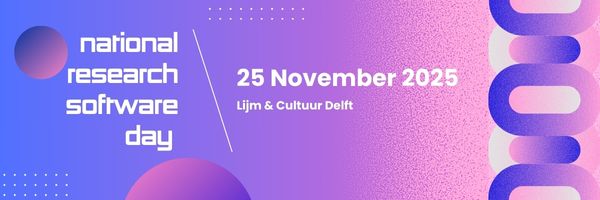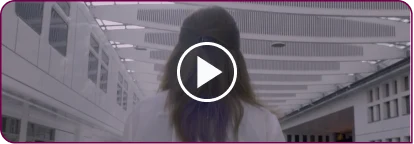September 2021 Meetup of the NL-RSE Community.

Location
The call will be conducted with the ZOOM conferencing platform. Follow Joining the Meeting instructions.
Zoom link will be sent to your email with your registration.
Registration
The registration is free.
Please register via this Eventbrite page.
Agenda
| Time | Responsible | Type | Subject |
|---|---|---|---|
| 14:30 - 14:45 | hello & coffee | ||
| 14:45 - 15:00 | Welcome and introductions | ||
| 15:00 - 15:30 | Adina Wagner | Talk | Data+Code+Software=PDF |
| 15:30 - 16:00 | Giulia Guizzardi | Talk | Executable Research Article (ERA): Enrich a research paper with code and data |
| 16:00 - 16:15 | Break | ||
| 16:15 - 16:45 | Fernando Perez | Talk | Computing, statistics and reproducibility: pedagogical reflections |
| 16:45 - 17:15 | discussion | Panel | |
| 17:15 - 18:00 | Evaluation & Networking |
Abstracts
Data+Code+Software=PDF
A demonstration of one of many ways to write an automatically reproducible research article, and a generic framework for actionable linkage of all building blocks of a project.
Executable Research Article (ERA): Enrich a research paper with code and data
Since 2017, eLife has been working on the concept of computationally reproducible papers. The open-source suite of tools that started life as the Reproducible Document Stack is live since August 2020 on eLife as ERA, the Executable Research Article, delivering a truly web-native format for taking published research to a new level of transparency, reproducibility and interactivity. At the moment, authors with a published eLife paper can register their interest to enrich their published work with the addition of live code blocks, programmatically-generated interactive figures, and dynamically generated in-line values, using familiar tools like R Markdown and Jupyter in combination with Stencila Hub’s intuitive asset management and format conversion interface. The resulting new ERA publication will be presented as a complement to the original published paper. Readers of ERA publications are able to inspect the code, modify it, and re-execute it directly in the browser, enabling them to better understand how a figure is generated. They are able to change a plot from one format to another, alter the data range of a specific analysis, and much more. All changes are limited to an individual’s browsing session and do not affect the published article, so anyone can experiment safely. Readers can also download the ERA publication – with all embedded code and data preserved – and use it as a basis for further study or derivative works.
Computing, statistics and reproducibility: pedagogical reflections
In this talk Fernando will discuss a course taught in the UC Berkeley statistics department, where they try to combine epistemological reflections on open and reproducible science, statistical considerations for data analysis that leads to robust and trustworthy results, and computational practices that support these ideas. They use tools from the Scientific Python and Jupyter ecosystem, and try to imbue the students with a practical appreciation of the real-world practice of open, collaborative science by working on open source projects, recently published literature and data.
The main ideas behind this approach can be implemented with other choices of tools as well, so we hope this discussion will be of interest to those who use different tools.
Call for Contributions
We are always looking for speakers and exciting topics, please contact the host Carlos Martinez if you would like to give a talk or are interested in learning about some specific topics.
Contact
If you have any questions, please contact the host Carlos Martinez
NL-RSE. The community of Research Software Engineers from Dutch universities, knowledge institutes, companies and other relevant organizations for sharing knowledge, organizing meetings and raising awareness for the scientific recognition of research software.

